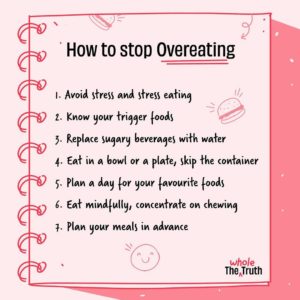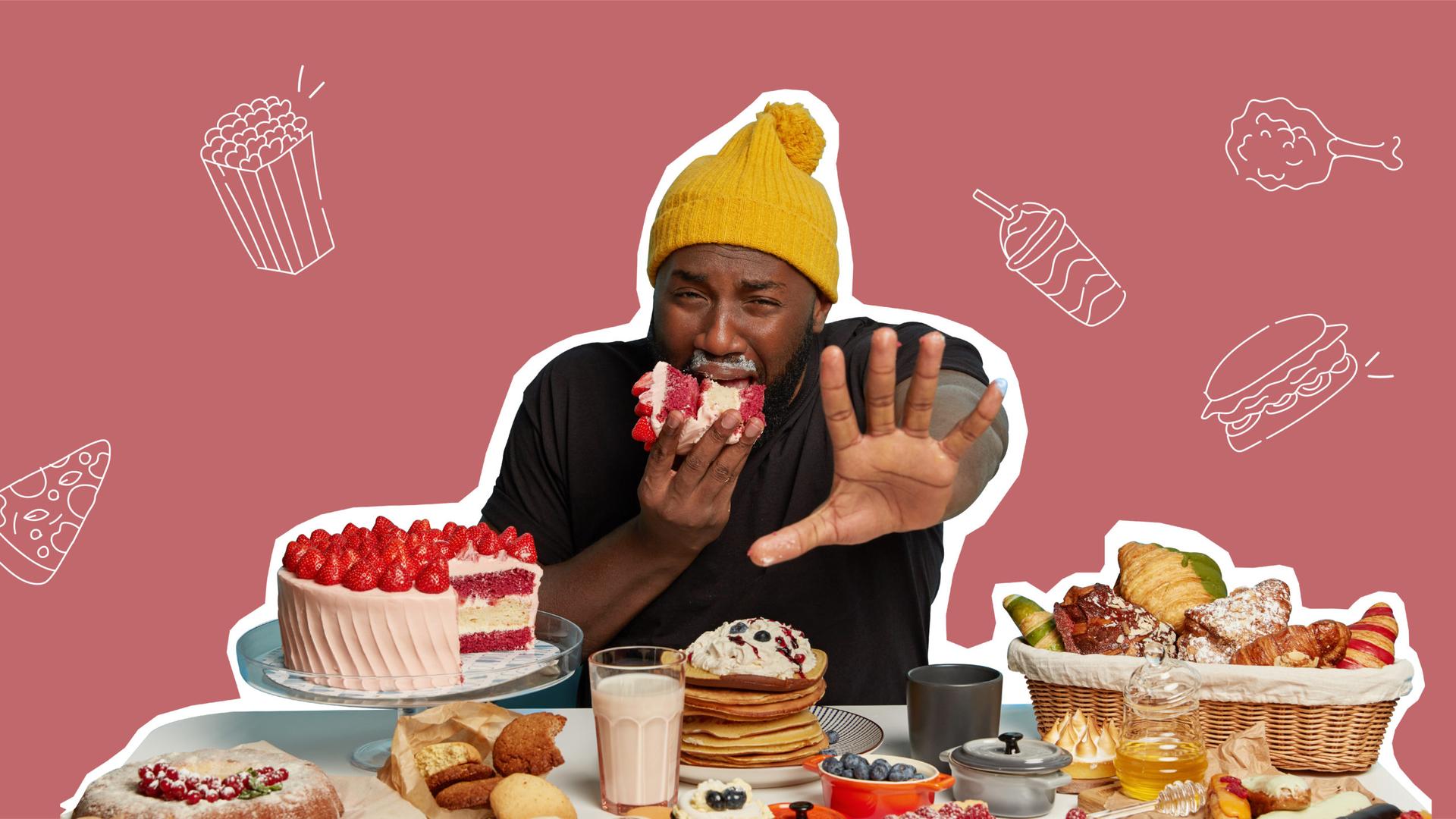How to avoid and overcome overeating?
How to overcome a food addiction? How to control and stop overeating?
The most trustworthy source of food and
fitness journalism in the country.
Have you ever said “one slice of bread” and then gone on to eat 2 more? Food addiction and overeating is one of the most subtle problems and once you’re finally aware of it there’s a whole mountain to climb.
But why do we get addicted? Why do we eat more than our body needs? Why do we not avoid overeating?
Mostly, it’s because we’re eating our feelings, not the food. That snack is an easy way to get that little dopamine hit we so crave. For example : We eating to improve mental headspace. And then we have a bad headspace because all that eating made you gain a few kgs.
It’s a vicious cycle! It is also important to understand the signs of food addiction.
So here are a few simple steps to stop overeating:
1. Avoid stress eating
Looking at food as a stress reliever is something that we all do. But the effects of this, especially in a lockdown are disastrous. Even Zerodha’s founder Nithin Kamath recently shared his fitness journey with us. He said that he had to distance himself from his kitchen. This helped him reduce snacking every other minute and to stop overeating.
So try and reduce stress by minding your mental health and schedule. Turn to other alternatives not food to relieve this stress. Be it meditation, a good set of small work breaks, or even therapy.
2. Know your trigger foods
What are the foods that increase your hunger or cause you to go off the rails and on a binge meal? For some, it might be one cup of rice that turns into 3 cups and for some, it might be ending each meal with dessert. Be mindful of what foods cause you to eat more and keeping track of them will help you avoid overeating.
3. Replace sugary beverages with water
Every sugary drink not only bumps up calorie intake but also does so at zero nutritional value. Instead, you could be consume nutritious foods that keep you satiated and aid recovery after workouts. Water is a great substitute for these drinks. You’ll stay hydrated and your stomach will stay full for a larger time as well. So this hack has double benefits!
4. Skip the container
Eating out of a container is well known to have toxic effects on your body. But another thing it takes your mind off is portion size. Different containers can hold different amounts of food. So you never know what your true serving size is!
Using the same plate/bowl for your meals allows you to gauge correct portion sizes. This also prevents you from taking that extra helping and overeating!
5. Plan a day for your favorite foods to avoid overeating
Cheat days are something everyone talks about and there’s a reason for it. Rewarding your body with some indulgences on a pre-decided day helps you be more disciplined. It also prepares your digestive systems to take the load for that one day as opposed to every day!
Oh, and as Gul Panag says, call it a ‘Treat Day’, not ‘Cheat Day’. Don’t have an adversarial relationship with your food.
6. Chew your food
Our brain takes a few minutes to register a full belly. Chewing your food allows your brain to register each morsel and allows easier digestion. The feeling of satiety will come only from a slow eaten, well-chewed meal. Wait 10-15 minutes after you’ve had your meal before turning to a snack. This is a game changer to avoid overeating.
7. Plan your meals in advance
Meal planning allows you to change your intake depending on your trigger foods. And also allows for a well-planned, balanced meal.
Instead of waiting for hunger and then overeating a snack, having a pre-planned meal and quantity makes clean eating much easier.
Here’s a quick revision of how to avoid overeating :

Frequently Asked Questions (FAQs)
Q. What is the healthiest sugar substitute for sugary beverages?
A. Water is a great substitute for sugary beverages. You’ll stay hydrated and your stomach will stay full for a larger time as well.
Q. What are the advantages of meal planning?
A. When hunger hits we often overeat. But having a pre-planned meal makes clean eating much easier . Meal planning allows you to change your intake depending on your trigger foods. Hence allowing you to go for a well-planned and balanced meal.
Q. Why should we chew our food properly?
Our brain takes a few minutes to register that the belly is full. There is 20 minute lag between your belly being full and that signal reaching your brain. Chewing your food allows your brain to register each morsel and allows easier digestion. The feeling of being full will come only from a slow eaten, well-chewed meal. This also helps you avoid overeating
